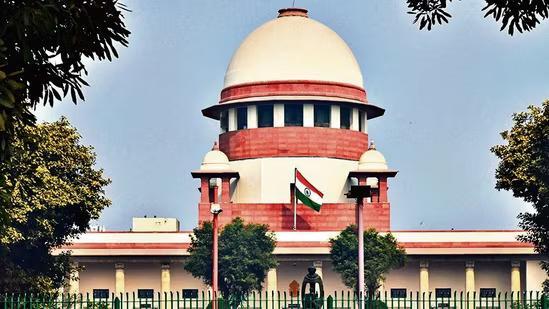
No Action Against Owners of 10 & 15-yr-old Diesel & Petrol Vehicles for 4 Weeks: SC
In a significant development, the Supreme Court has announced that no “coercive” action will be taken against the owners of over 10-year-old diesel and 15-year-old petrol vehicles in Delhi for a period of four weeks. The order was passed in response to an application filed by the Delhi government, which challenged the ban on the vehicles as a pollution control measure in the capital.
The ban, which was imposed by the National Green Tribunal (NGT) in 2015, prohibits the use of diesel vehicles more than 10 years old and petrol vehicles more than 15 years old in Delhi. The NGT had passed the order to reduce the alarming levels of air pollution in the city. However, the Delhi government had moved the Supreme Court challenging the ban, citing the difficulties that it would cause to the public.
In its order, the Supreme Court has stayed the NGT’s ban on the use of old vehicles in Delhi and has asked the government to file a detailed report on the pollution caused by these vehicles. The court has also directed the government to take necessary measures to reduce the pollution levels in the city.
The Delhi government had argued that the ban would cause significant inconvenience to the public and would also have an adverse impact on the economy. It had also pointed out that the government had made significant efforts to reduce the pollution levels in the city, including the introduction of the Odd-Even scheme, which restricts the use of private vehicles on the roads based on their number plates.
The NGT, on the other hand, had argued that the ban was necessary to reduce the pollution levels in the city, which had reached alarming levels. It had also pointed out that the government had failed to take adequate measures to reduce the pollution levels, despite several directions from the court.
The Supreme Court’s order has come as a relief to the owners of old vehicles, who had been worried about the ban being enforced. The court’s decision has also raised questions about the effectiveness of the ban in reducing pollution levels in the city.
The Delhi government has welcomed the Supreme Court’s order, saying that it is a major relief to the people of Delhi. “The Supreme Court’s order is a major relief to the people of Delhi, who were worried about the ban being enforced,” said a government spokesperson. “We will continue to work towards reducing the pollution levels in the city and will file a detailed report on the pollution caused by old vehicles.”
The NGT has also welcomed the Supreme Court’s order, saying that it is a temporary reprieve and that the ban will still be enforced once the court’s directions are complied with. “The NGT’s ban on old vehicles is still in place and will be enforced once the court’s directions are complied with,” said an NGT spokesperson.
The Supreme Court’s order has also raised questions about the effectiveness of the ban in reducing pollution levels in the city. The Delhi government had argued that the ban would cause significant inconvenience to the public and would also have an adverse impact on the economy. However, the NGT had argued that the ban was necessary to reduce the pollution levels in the city, which had reached alarming levels.
The Supreme Court’s order has also highlighted the need for a more comprehensive approach to reduce pollution levels in the city. The Delhi government had made significant efforts to reduce the pollution levels in the city, including the introduction of the Odd-Even scheme, which restricts the use of private vehicles on the roads based on their number plates. However, the NGT had argued that more needed to be done to reduce the pollution levels.
In conclusion, the Supreme Court’s order has stayed the NGT’s ban on the use of old vehicles in Delhi and has asked the government to file a detailed report on the pollution caused by these vehicles. The court’s decision has come as a relief to the owners of old vehicles, who had been worried about the ban being enforced. However, the order has also raised questions about the effectiveness of the ban in reducing pollution levels in the city and the need for a more comprehensive approach to reduce pollution levels in the city.






